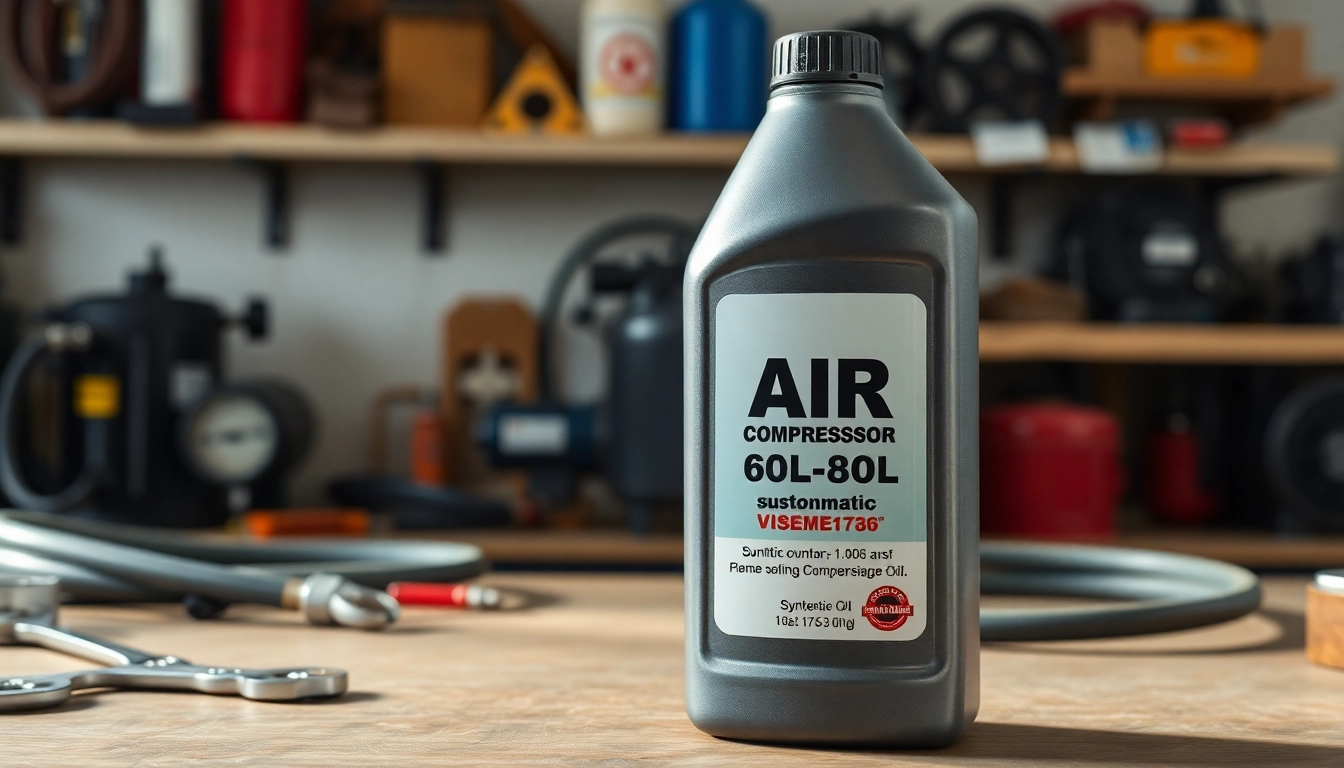Choosing the Right Air Compressor Oil: Essential Tips for Optimal Performance
The Importance of Using the Correct Air Compressor Oil
Air compressors are invaluable equipment in various industries and for home use, ranging from powering pneumatic tools to inflating tires. However, the performance and longevity of an air compressor largely depend on the type of oil used. When it comes to operating an air compressor efficiently, using the correct air compressor oil is paramount. This article delves into the significant roles that compressor oil plays in ensuring optimal functionality, extended lifespan, and overall efficiency of air compressors.
Understanding Functionality and Efficiency
The primary function of air compressor oil is to lubricate the moving parts within the compressor. This lubrication minimizes friction and heat generation during operation, which can lead to wear and tear. Without proper lubrication, components such as pistons and rotors may experience increased friction, leading to overheating and potential damage. This, in turn, impacts the compressor’s efficiency. A well-lubricated compressor runs cooler and smoother, maintaining a stable pressure and preventing catastrophic failures.
Impact on Compressor Longevity
Using the appropriate compressor oil can significantly prolong the lifespan of your air compressor. High-quality oils are formulated to withstand extreme temperatures and pressures, protecting vital components. For example, non-detergent oils are designed to allow contaminants to settle, whereas detergent oils can maintain cleanliness by suspending particles. The right oil enables your compressor to function optimally over a more extended period, ensuring that you don’t have to invest in costly repairs or replacements prematurely.
Common Oil Types and Their Uses
Different types of compressor oils cater to various compressor designs and applications. Common types include:
- Non-Detergent Motor Oil: Often used in reciprocating pumps for its ability to prevent sludge formation.
- Synthetic Oils: These oils provide superior thermal stability and wear protection, making them ideal for rotary screw compressors.
- Hydraulic Oils: Sometimes used as substitutes; however, they may not provide the specific protection required for some compressor components.
- Compressor Oils: Specifically formulated to meet the requirements of compressor equipment, they often come in different grades to suit various applications.
Types of Air Compressor Oil Available
Synthetic vs. Non-Synthetic Options
When selecting compressor oil, one must consider synthetic versus non-synthetic options. Synthetic oils provide better performance in extreme temperatures and extended drain intervals. They resist degradation longer than their non-synthetic counterparts, making them an excellent choice for high-demand environments. In contrast, non-synthetic oils tend to be cost-effective and may be suitable for less demanding applications, but they require more frequent changing.
Choosing Based on Compressor Type
Different compressor types have varying oil requirements. For instance, rotary screw compressors typically require synthetic oils that can handle high temperatures and pressures, while reciprocating compressors may perform adequately with non-detergent mineral oils. It’s crucial to consult the manufacturer’s guidelines for oil specifications to ensure compatibility.
Recommendations for Specific Applications
For heavy-duty applications, synthetic oils like Mobil Aero 28 or Amsoil Compressor Oil are often recommended due to their superior lubricating properties. Conversely, for light-duty applications or home use, a non-detergent SAE 30 oil can suffice. Always prioritize oils with additives designed to enhance performance and protect against oxidation and wear.
How to Properly Maintain Your Compressor Oil
Checking Oil Levels and Quality
Regular maintenance is vital for ensuring your air compressor operates efficiently. Checking oil levels should be part of your routine checks, ideally before each use. Look for signs of contamination, such as discoloration, sludge, or excessive foaming. Maintaining proper oil levels is crucial, as low oil can lead to severe damage.
Oil Change Frequency and Best Practices
The frequency of oil changes depends on several factors, including the type of compressor, the environment it operates in, and the oil’s quality. Generally, it’s advisable to change the oil every 3 to 6 months or after approximately 500 operational hours for heavy-duty applications. However, always observe the manufacturer’s recommendations for specific guidance on timing and procedures.
Signs of Oil Degradation and Replacement
Degraded oil can manifest in various ways: if the oil appears dirty, has a burnt smell, or contains particles, these are indications that it’s time for a change. Additionally, if your compressor is making unusual noises or not functioning optimally, these could be signs of oil problems, necessitating immediate action.
Choosing the Best Air Compressor Oil for Your Needs
Evaluating Viscosity Ratings
Viscosity plays a crucial role in selecting the right air compressor oil. It’s important to match the oil’s viscosity to the temperature and operating conditions of your compressor. For general applications, SAE 30 is commonly recommended, while synthetic oils often come with multigrade options like 10W-30 to accommodate various temperatures.
Considering Environmental Factors
When choosing oil, it’s essential to consider environmental conditions such as ambient temperature and humidity. For example, in colder climates, using a lower viscosity oil can aid in smooth starting and operation in low temperatures. Alternatively, in very hot conditions, a synthetic oil with a higher viscosity can maintain performance.
Top Brands in the Market
The air compressor oil market boasts several reputable brands renowned for their quality and performance. Leading brands include Mobil, Amsoil, and Royal Purple, which are often recommended by professionals for their formulation and effectiveness. Additionally, many major equipment manufacturers offer proprietary oils formulated to meet their products’ specific needs.
Common Myths About Air Compressor Oil
Debunking Engine Oil Misconceptions
A common misconception is that regular engine oil can be used in air compressors. This is misleading; standard engine oil contains detergents and additives that may foam and degrade under the high temperature and pressure conditions of an air compressor. Instead, using oil specifically designed for air compressors is crucial for safety and performance.
The Truth About Using Substitutes
Some users may wonder about using substitutes for compressor oil, such as vegetable or motor oils. While some substitutes, like hydraulic oil, can serve in a pinch, they often fail to meet the specific requirements of air compressor operations. Using non-recommended oils can void warranties and lead to significant damage, so it’s advisable to use the recommended oil type.
Impact of Quality on Compressor Performance
The quality of air compressor oil directly affects performance and longevity. High-quality oils often contain additives that enhance protection against oxidation, corrosion, and foam formation. Investing in a reputable oil ensures your compressor operates efficiently and lasts longer, ultimately saving money on repairs and replacements.



